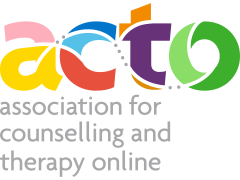
Code of Ethics and Professional Conduct
ACTO is currently reviewing its Online Guidelines / Code of ethics. This process will take around 24 months. In the interim, all members are required to adhere to this current statement of Professional Conduct and Code of Ethics.
We will write to all members once the new online guidelines are complete.
We take very seriously the need to ensure that all ACTO members work ethically and professionally and to take appropriate action if they do not.
This page contains, below, the Code of Ethics to which all members are required to adhere, followed by an outline of the Professional Conduct Procedure to be followed in the event that a member is accused of being in breach of it.
We also wish to draw your attention to the following statement:
ACTO and ‘conversion’ or ‘reparative’ therapy
ACTO respects and values sexual diversity. We do not consider homosexuality or other non-straight sexual orientations to be pathological or resulting from developmental irregularity. They are not diseases or mental disorders and therefore do not need to be ‘treated’.
ACTO deplores the practice of any psychological therapy that attempts to change a client’s sexual orientation. Our response to a client who requests this would be to explore their reasons and to work with them to help them see that they are not damaged or abnormal.
American Psychological Association, Task Force on the Appropriate Therapeutic Response to Sexual Orientation. (2009). Report of the Task Force on the Appropriate Therapeutic Response to Sexual Orientation. Washington, DC.
Bartlett, A., Smith, G., King, M. (2009) ‘The response of mental health professionals to clients seeking help to change or redirect same-sex sexual orientation’. Division of Mental Health, St George’s Hospital, University of London; Department of Mental Health Sciences, University College Hospital, University of London
ACTO have produced this document to help promote safe professional practice for those psychological therapists who work online. All ACTO members are required to adhere to and follow the Code of Ethics of the organisation with whom they hold membership or accreditation – in addition to the ACTO ethical framework.
ACTO expects all its members to adhere to the following:
a. Be aware of and familiarise themselves with the differences between online and face to face psychological therapy and the impact that online work can have on the relationship between therapist and client and the therapeutic process
b. Be aware of and work within their limitations and competence; seeking regular supervision preferably from an experienced online supervisor; and be willing to undertake continuing professional development.
c. Recognise and respect diversity and difference especially when working across international/cultural boundaries and be alert to the possibility of misinterpretation of the written and/or spoken word.
d. Have the ability to assess clients appropriately and ensure their suitability for online work.
e. Ensure that clients have read, understood and agreed on their personal contract/agreement for working online together before the therapeutic work begins.
f. Take appropriate hardware and software measures to protect the integrity and privacy of their computer systems and to remove client material from their computers at the end of the contracted work.
g. Ensure that all clients have access to clear written statements, in an explicit format, of all email transactions and monies paid to their therapist.
h. Ensure that all clients have a clear understanding of what to do in the event of server or computer outage and breakdown.
i. Respect and be aware of their clients’ right to take decisions and to act for themselves.
j. Supply accurate and up-to-date information about the service they are offering the client; including fees for all the forms of online therapy they offer.
k. Avoid taking advantage of clients or exploiting them in any way; (For example, sexually, financially, psychologically, or emotionally).
l. Work only when both client and therapist are deemed fit to do so (physically / psychologically / technologically) to ensure the quality of the therapy they provide.
m. Protect their own position, if possible, by obtaining appropriate insurance to cover the work they undertake.
n. Keep at least brief records of their counselling work with clients, unless there are exceptional reasons for not doing so.
o. Keep up to date with any legal requirements that affect their online work.
p. Avoid offering services to a child or young person where they believe ‘informed consent’ cannot apply, without first obtaining permission from a person with parental responsibility, unless they are working for a registered voluntary or statutory organisation that offers anonymity and does require ‘parental consent’ as a pre-requisite for using the service.
q. Never indicate or imply that they are working for ACTO. Membership of ACTO is not a contract of employment.
r. Never indicate or imply that membership of ACTO offers proof of the therapist’s qualifications or training.
s. Treat their online colleagues with professional courtesy and respect both directly and indirectly (i.e. in how they represent themselves to others).
t. Practitioners should not allow their professional relationships with clients to be prejudiced by any personal views they may hold about lifestyle, gender, age, disability, race, sexual orientation, beliefs or culture.
ACTO requires all its members to be a member of a professional membership body AND to adhere to the ethical framework and code of ethics of that organisation. Professional complaints must be made to that association – not to ACTO.
